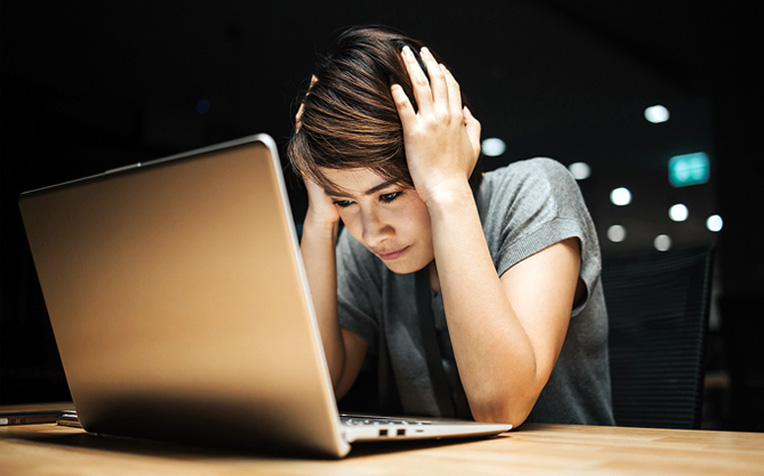
10 October is World Mental Health Day. With the ongoing COVID-19 pandemic and gloomy economic outlook, it's absolutely normal to feel anxious. But how can you tell if you're not just being overly worried and suffering from an anxiety disorder instead?
Associate Professor Leslie Lim, Senior Consultant from the
Department of Psychiatry at
Singapore General Hospital (SGH), a member of the
SingHealth group, answers.
What are anxiety disorders?
Anxiety disorders refer to a range of mental conditions characterised by fearfulness, worry and uncertainty which interfere with the person’s life. “About 10 per cent of the population in Singapore suffer from anxiety and depressive disorders. Out of this, six per cent have depression, 0.9 per cent have generalised anxiety disorder (GAD), and three per cent have obsessive-compulsive disorder (OCD),” shares Assoc Prof Lim.
Anxiety disorder conditions include:
1.Generalised anxiety disorder (GAD)
Characterised by excessive worry excessively about health, money, family or work even if there is no reasonable cause. Symptoms include:
These symptoms are usually accompanied by headaches, muscle tension, irritability, sweating and fatigue.
Read more: Is it depression or just feeling sad? How to tell the difference
2. Obsessive-compulsive disorder (OCD)
Characterised by:
Obsession: Persistent and intrusive thoughts and impulses which are resisted at the cost of mounting anxiety.
Compulsion: Repeated actions – known as “rituals” – that are performed in reaction to obsessions and in accordance with the sufferer’s rules.
3. Panic disorder
Characterised by sudden attacks of fear, usually accompanied by breathlessness, a choking sensation, shortness of breath, a pounding heart and fears of losing control or going crazy.
It can occur anytime, even while watching television or sleeping, and typically lasts about 10-20 minutes each time.
4. Social anxiety disorder (social phobia)
Those with social phobia are excessively anxious and self-conscious in everyday social situations. They fear being watched and judged by others, and may be overly worried for days or weeks before a social event.
Symptoms include profuse sweating, trembling and nausea.
5. Phobias
Phobias arouse an intense and irrational fear of something that may not actually be dangerous, such as animals, heights and thunder. Sometimes just thinking about the trigger can bring on a panic attack.
Read more:
Eating disorders - Types and how to know if you have it
6. Post-traumatic stress disorder (PTSD)
This condition usually affects victims of violent crime, accidents, war veterans and survivors of natural disasters, or even to an observer, such as someone who witnessed a loved one being harmed.
Sufferers are easily startled, emotionally numbed, irritable or aggressive and experience frequent flashbacks.
How to tell if anxiety becomes a problem
In its mild form, an anxiety disorder will not affect normal life. “A person with a job will still be able to show up at work, although he or she may be less productive than usual,” explains Assoc Prof Lim.
“Only severe forms of anxiety disorders can disrupt daily activities. For example, making it impossible for the sufferer to go to work."
If the anxiety is disruptive, you should consult a doctor.
“Your doctor will take some blood tests to rule out physical issues like
hyperthyroidism, as well as use a diagnostic tool like an electrocardiogram (ECG) to exclude cardiac conditions.”
How are anxiety disorders treated?
Fortunately, anxiety disorders are highly treatable. Depending on the specific type of anxiety disorder, doctors may prescribe several classes of medications (such as anti-depressants for GAD).
Psychotherapy can also help. This includes cognitive behaviour therapy which helps you to recognise and control your fears, modify your way of thinking, or desensitise you to anxiety triggers.
Read more:
20 Stress-busting tips psychiatrists recommend
--
Articles on
HealthXchange.sg are meant for informational purposes only and cannot replace professional surgical, medical or health advice, examination, diagnosis or treatment. Photo courtesy of iStock.